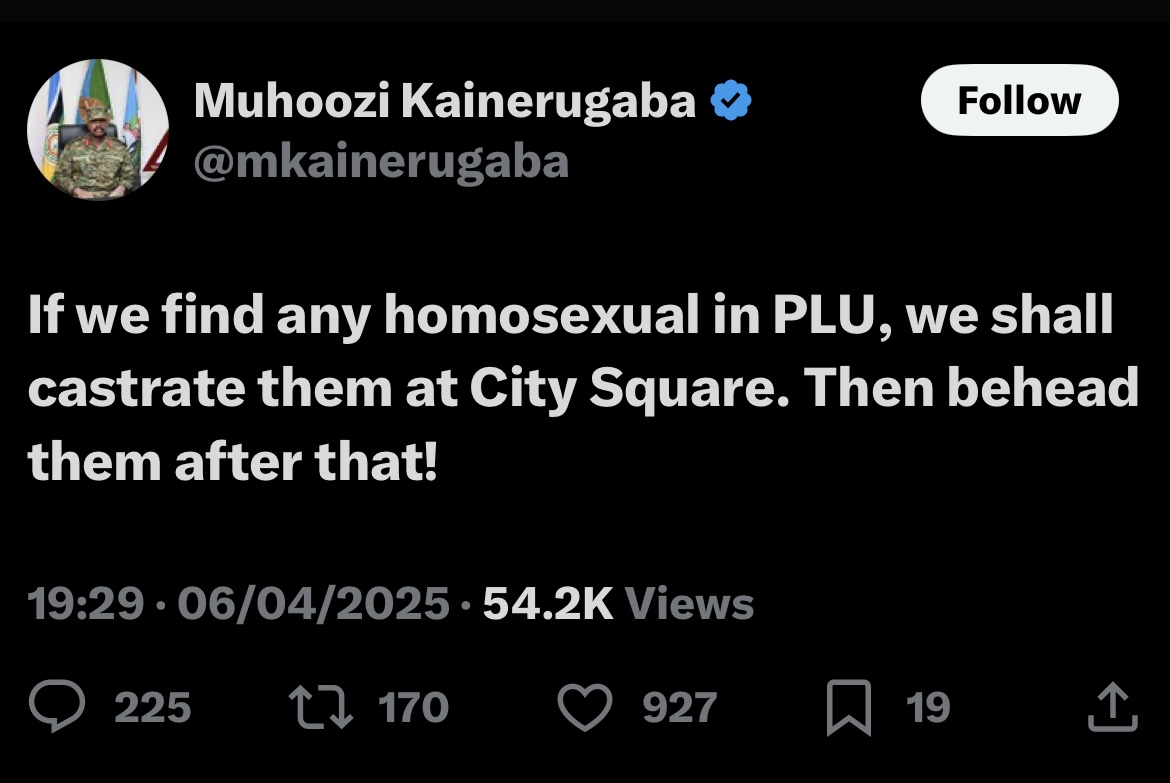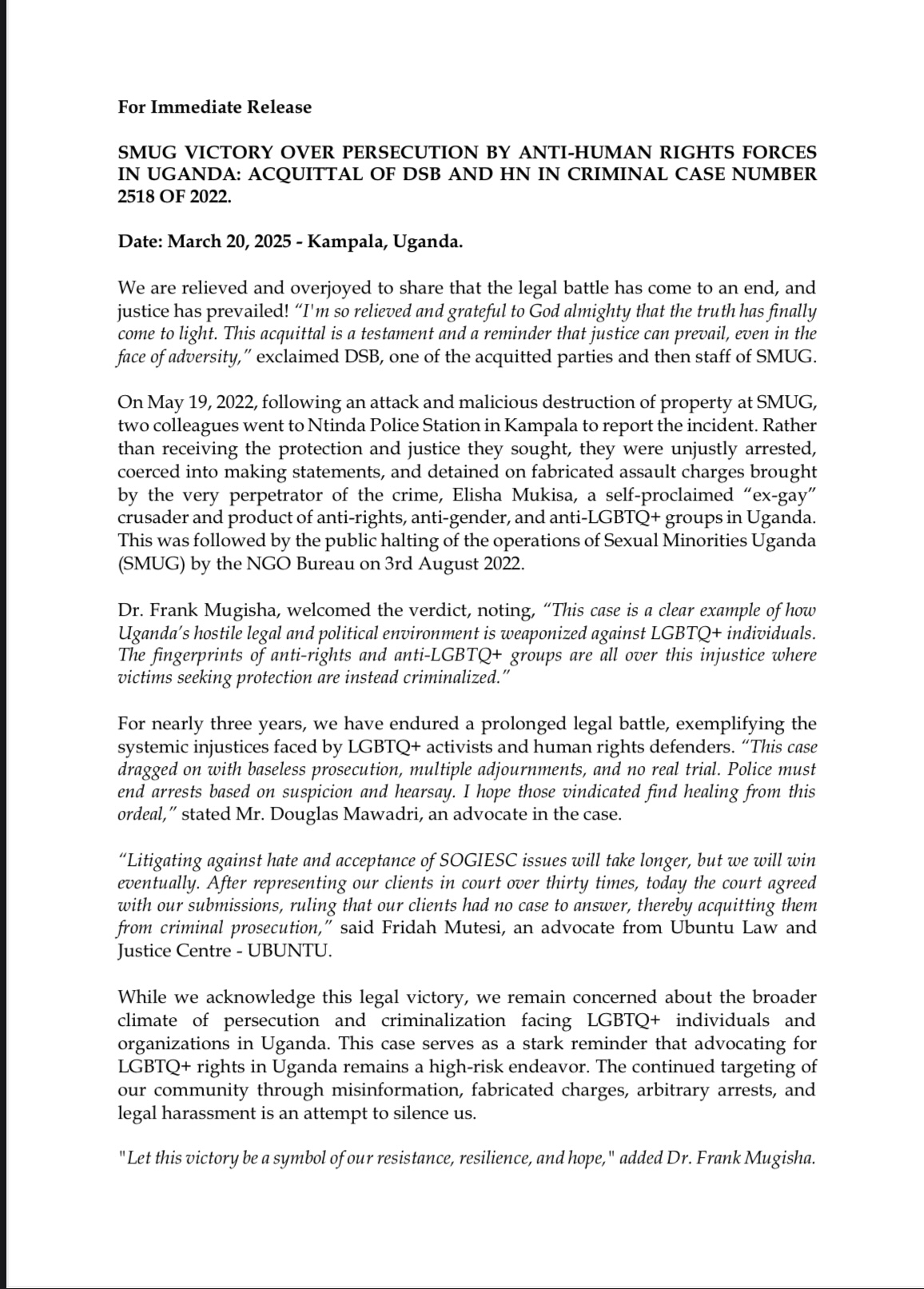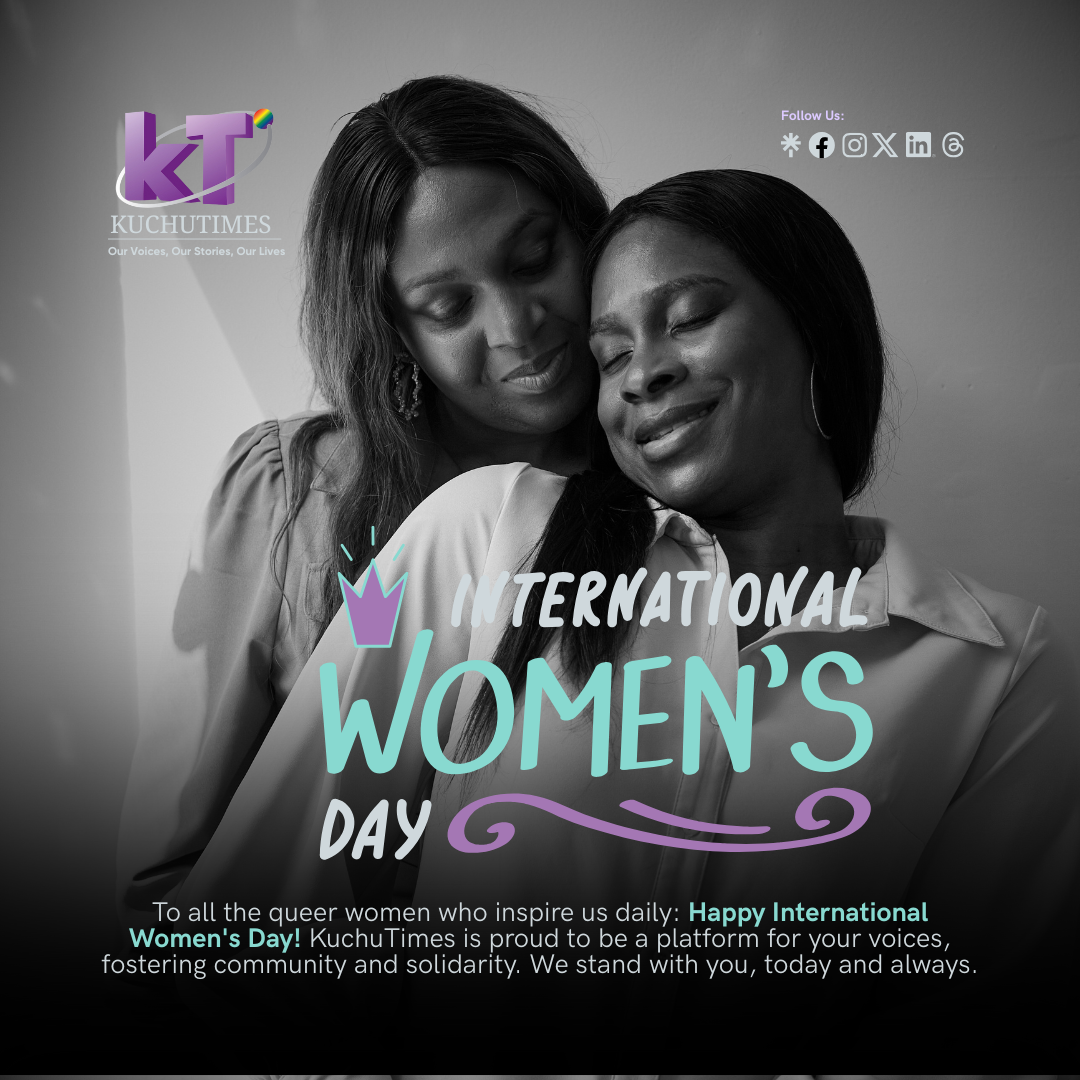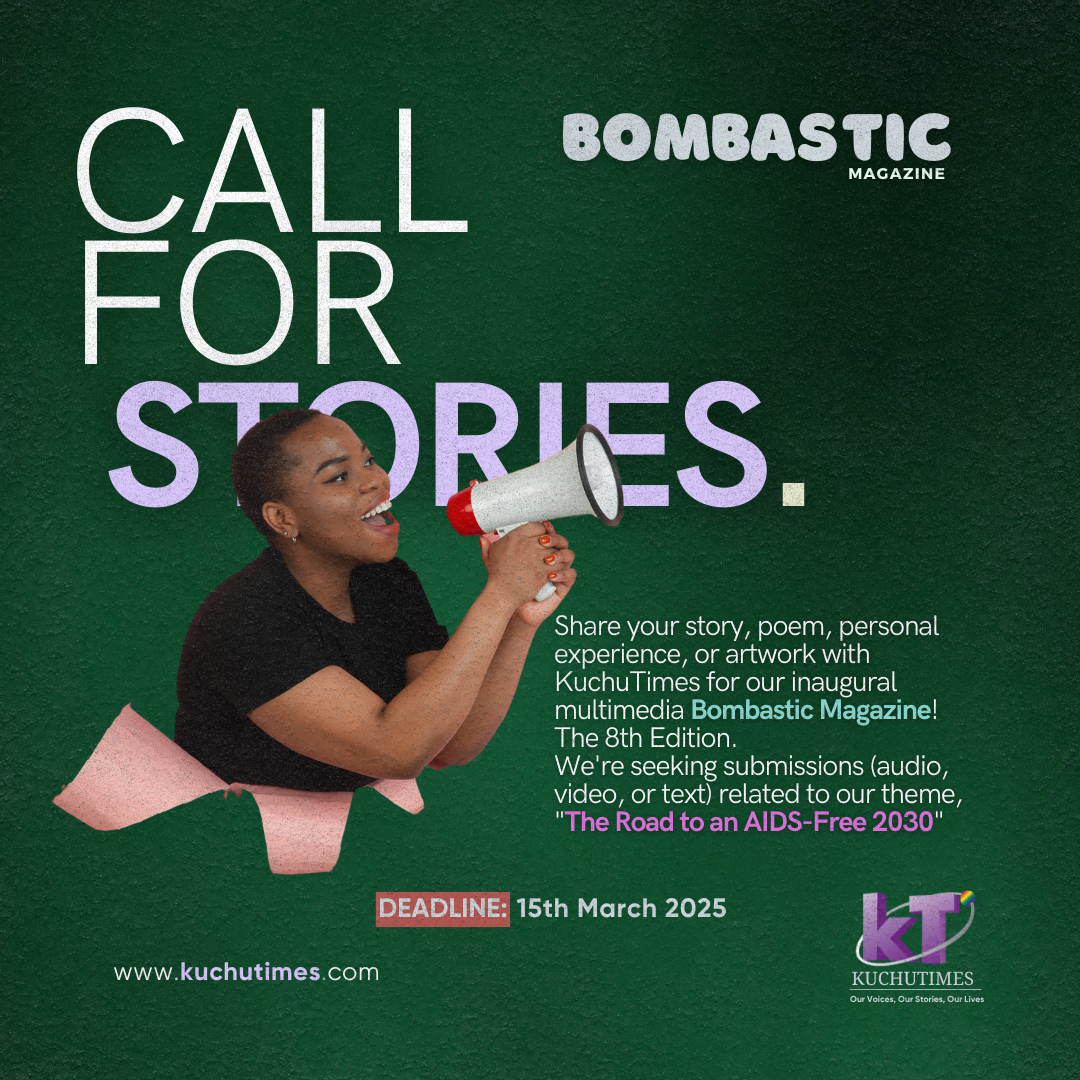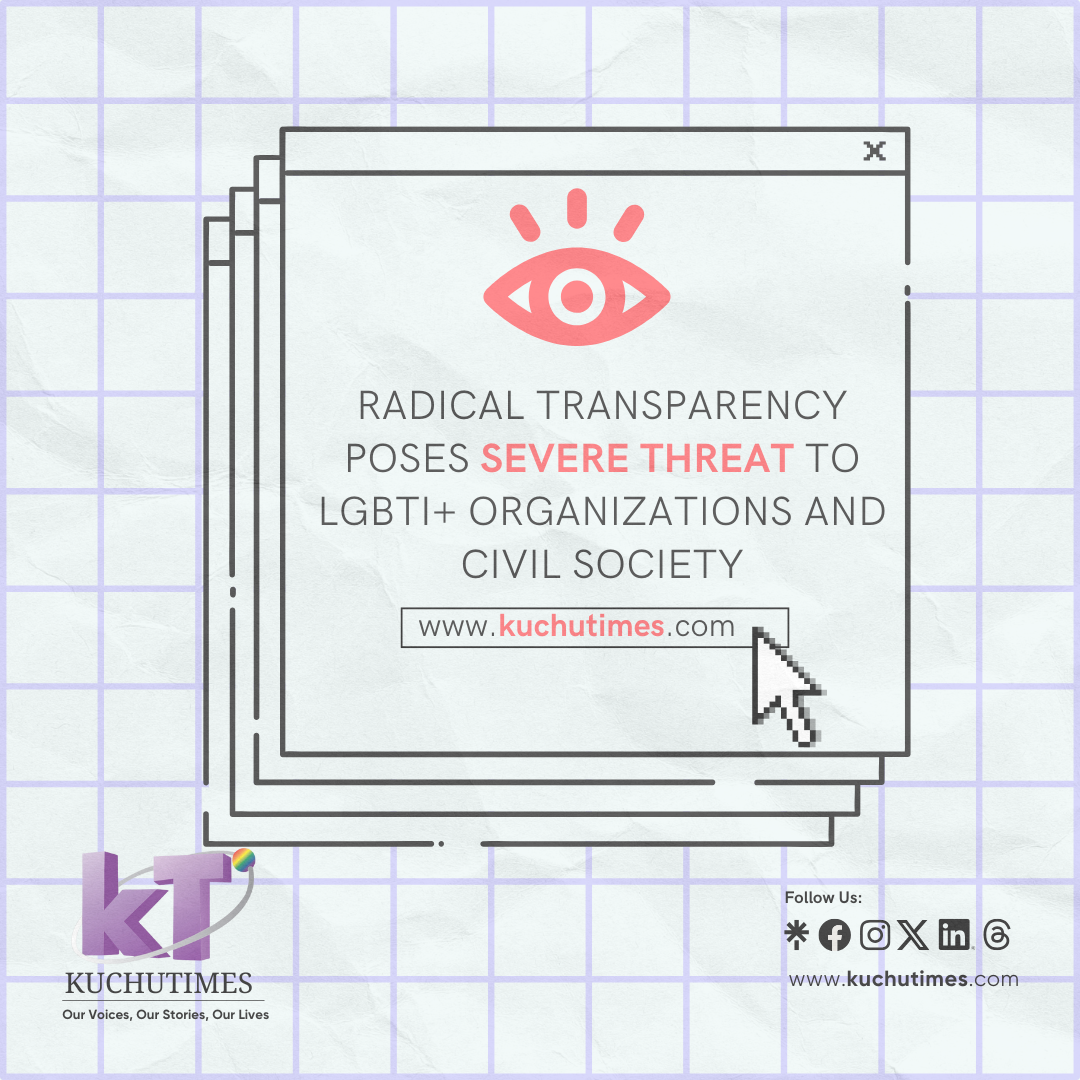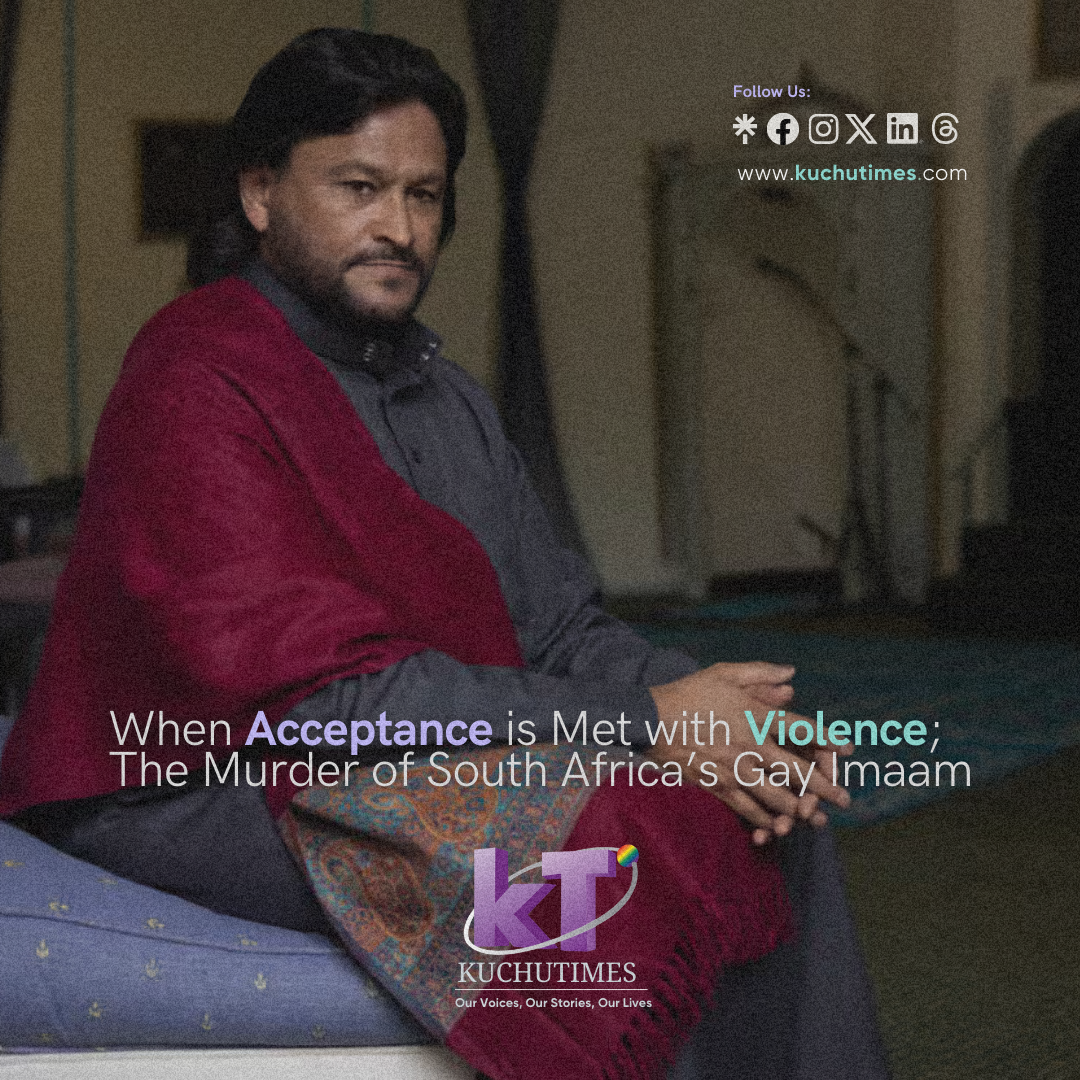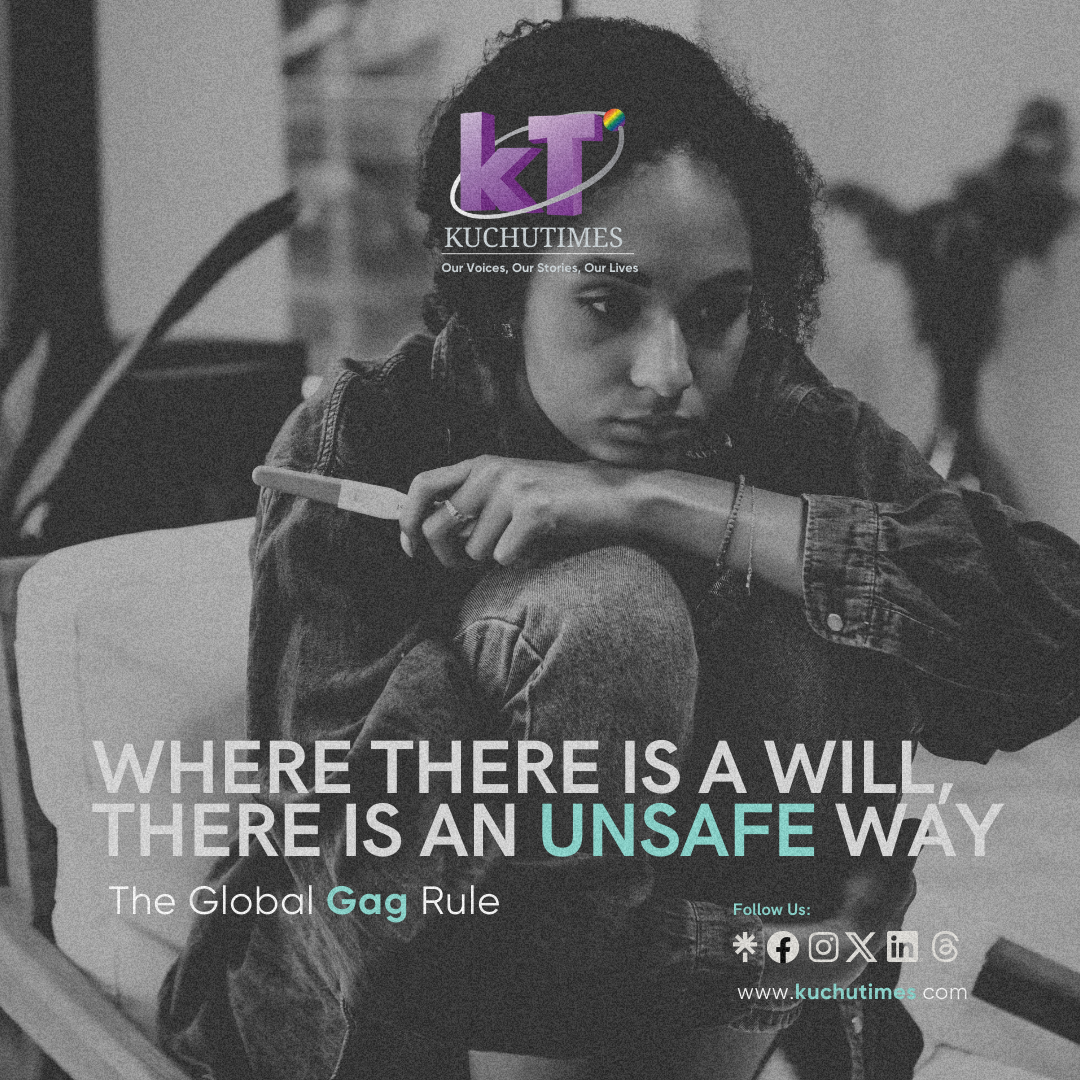Activists, journalists, and human rights defenders, many of whom already navigate threats both online and offline now face the added burden of potential state surveillance. This not only curtails freedom of expression but also creates a chilling effect across civil society, pushing critical voices further into the shadows.
This tool’s arrival echoes a broader trend of digital authoritarianism on the continent, where surveillance is weaponized to suppress dissent. But resistance is possible. Civil society must push for transparency and legal safeguards that protect digital rights. International allies must hold governments accountable, and tech platforms must enhance protections for vulnerable users.
Kuchu Times Editor
At the heart of the comic is Davii, a queer protagonist navigating friendship, love, and identity in a society that questions their existence. Alongside Davii is Oti, a friend who mirrors the wider heterosexual community, offering opportunities for dialogue and learning. Kevoo brings the emotional depth of what it means to survive and reflect as an LGBTQ+ person, while Bonnie, the antagonist, represents societal forces that perpetuate queerphobia.
The comic also introduces us to Aisha and Amina, a couple that radiates love and the hope of community acceptance. Mwangi, a non-binary character, takes us on a journey of self-acceptance, while Nya, a queer woman, sheds light on workplace discrimination and economic empowerment, showcasing the importance of resilience and thriving in the face of adversity.
Uganda is already grappling with the devastating impact of the Anti-Homosexuality Act of 2023, which imposes severe penalties including the death sentence for consensual same-sex relations. The law has not only legitimized discrimination and hate, but also emboldened ordinary citizens and state actors alike to act with impunity against LGBTQ+ people. In this environment, Muhoozi’s words are not empty; they are fuel to an already raging fire.
While we acknowledge this legal victory, we remain concerned about the broader climate of persecution and criminalization facing LGBTQ+ individuals and organizations in Uganda. This case serves as a stark reminder that advocating for LGBTQ+ rights in Uganda remains a high-risk endeavor. The continued targeting of our community through misinformation, fabricated charges, arbitrary arrests, and legal harassment is an attempt to silence us.
In Uganda and across the African continent, discriminatory laws continue to threaten the safety, dignity, and freedoms of women. The Anti-Homosexuality Act, the Sexual Offenses Bill, and the Marriage Bill are all part of a legal system designed to control, police, and exclude certain groups of women from enjoying their fundamental rights. These laws not only violate international human rights standards but also reinforce patriarchal systems that dictate who is worthy of protection and who is not.
Share your lived experiences, advocacy work, or creative expressions to highlight resilience and inspire action. Submissions should be emailed to kuchutimes@gmail.com by March 15, 2025. Help us amplify the voices of those most affected and shape the path toward an AIDS-free future!
The ramifications of this directive extend beyond LGBTI+ organizations. Civil society as a whole, particularly human rights defenders, women’s rights groups, and organizations advocating for marginalized communities, could all be at risk. The directive’s broad language around “ideological projects” and “national interest” raises concerns about selective enforcement and potential retaliation against groups whose missions do not align with conservative agendas.
As we mourn the loss of Imaam Muhsin Hendricks, we must also reflect on the broader fight for LGBTQ+ rights, recognizing that legal reforms are only one part of the struggle. True safety and acceptance demand societal change, including within religious communities.
Here’s the harsh truth: banning abortion only bans safe abortion. People will always seek ways to end unwanted pregnancies, whether legal or not.
According to the World Health Organization, unsafe abortions are a leading cause of maternal deaths globally. When legal pathways are closed, individuals especially those in marginalized communities are forced to resort to unsafe, life-threatening procedures. This is not about reducing abortions; it’s about controlling bodies and denying reproductive autonomy.
Convening For Equality (CFE), a global community of LGBTQ+ persons, allies, and organizations dedicated to challenging anti-LGBTQ+ laws, stigma, and attitudes in Uganda, has been honored with the prestigious Democracy Courage Tribute Award 2024. The award was presented during the World Movement for Democracy’s 12th Assembly, a significant platform that unites democracy advocates from around […]



